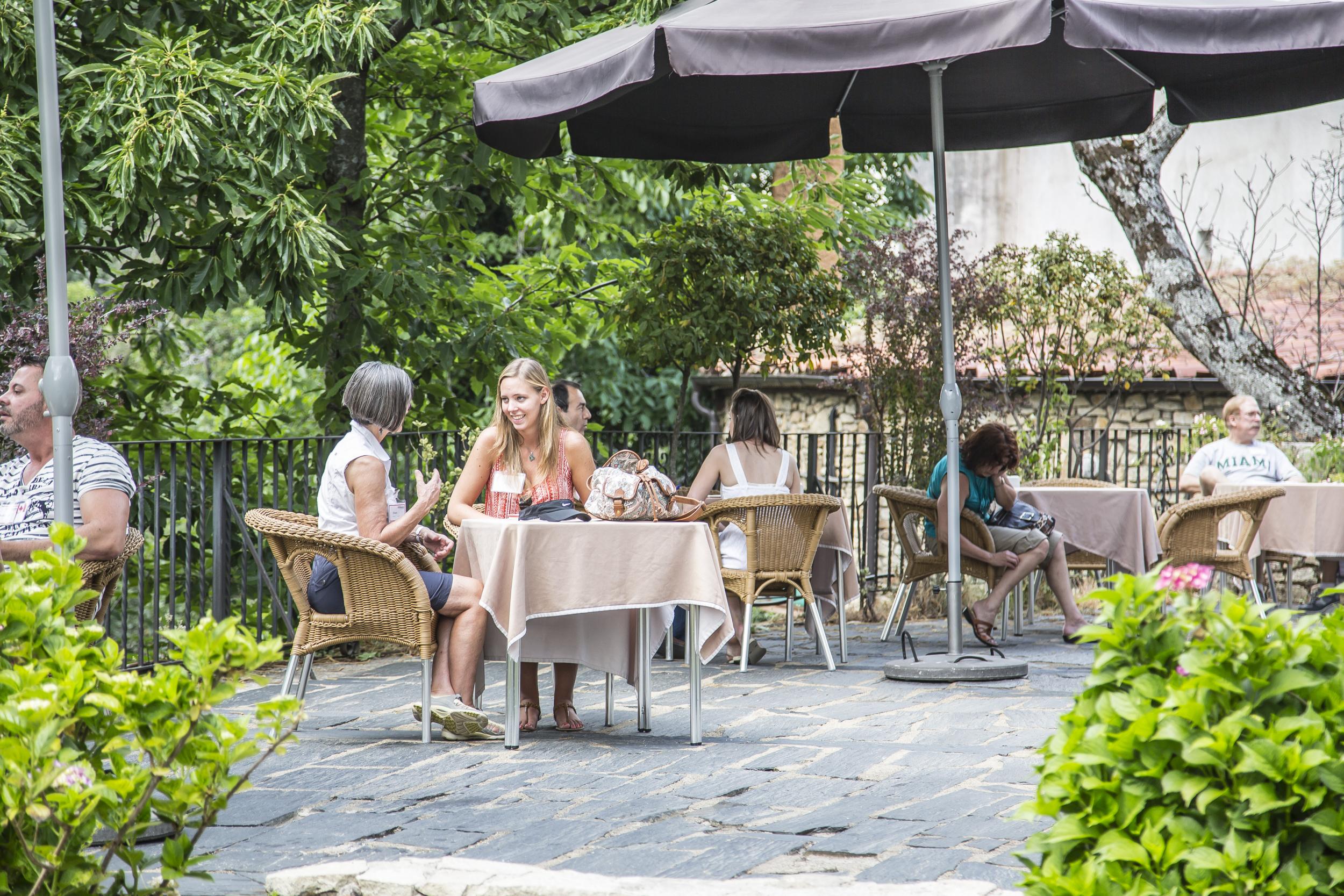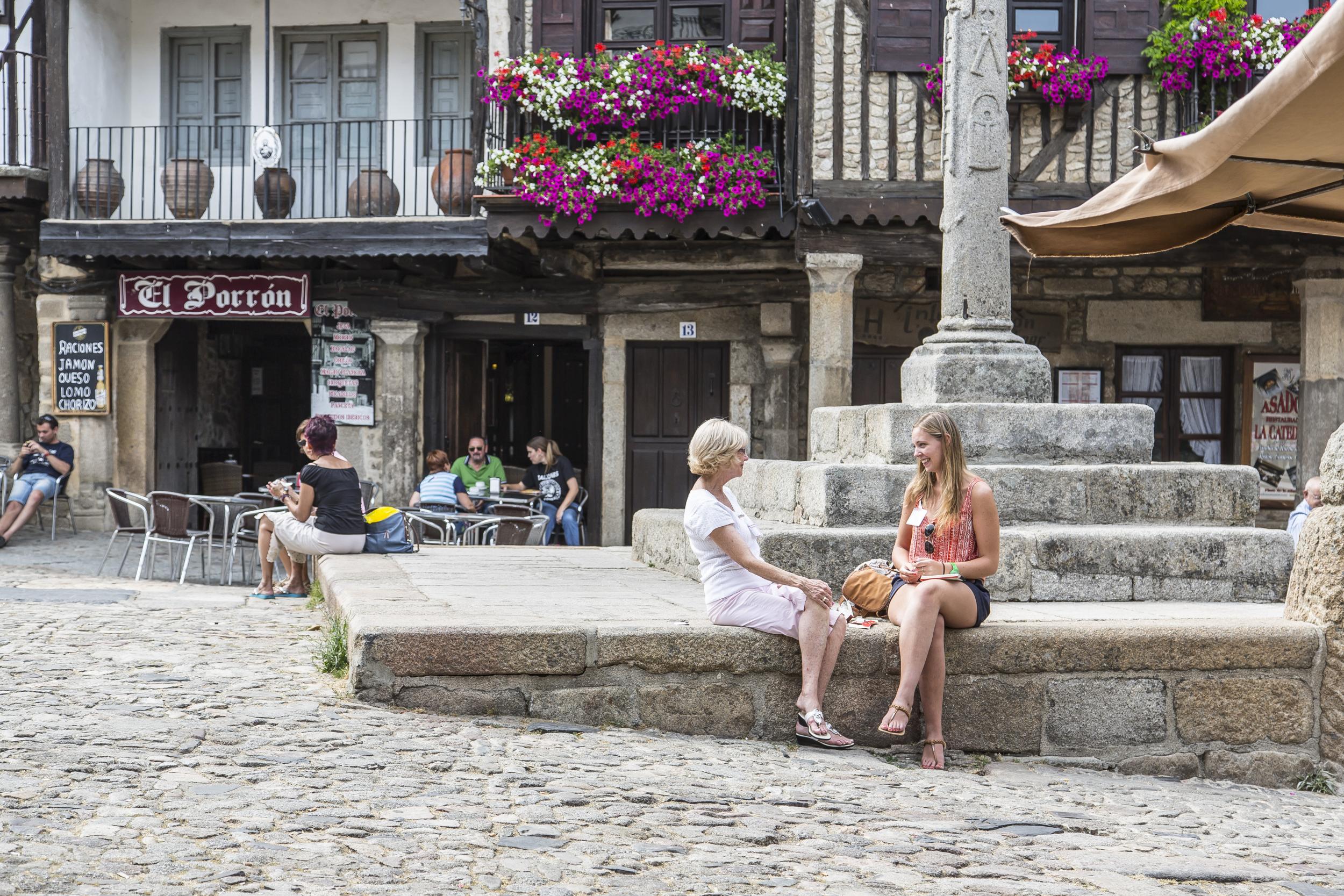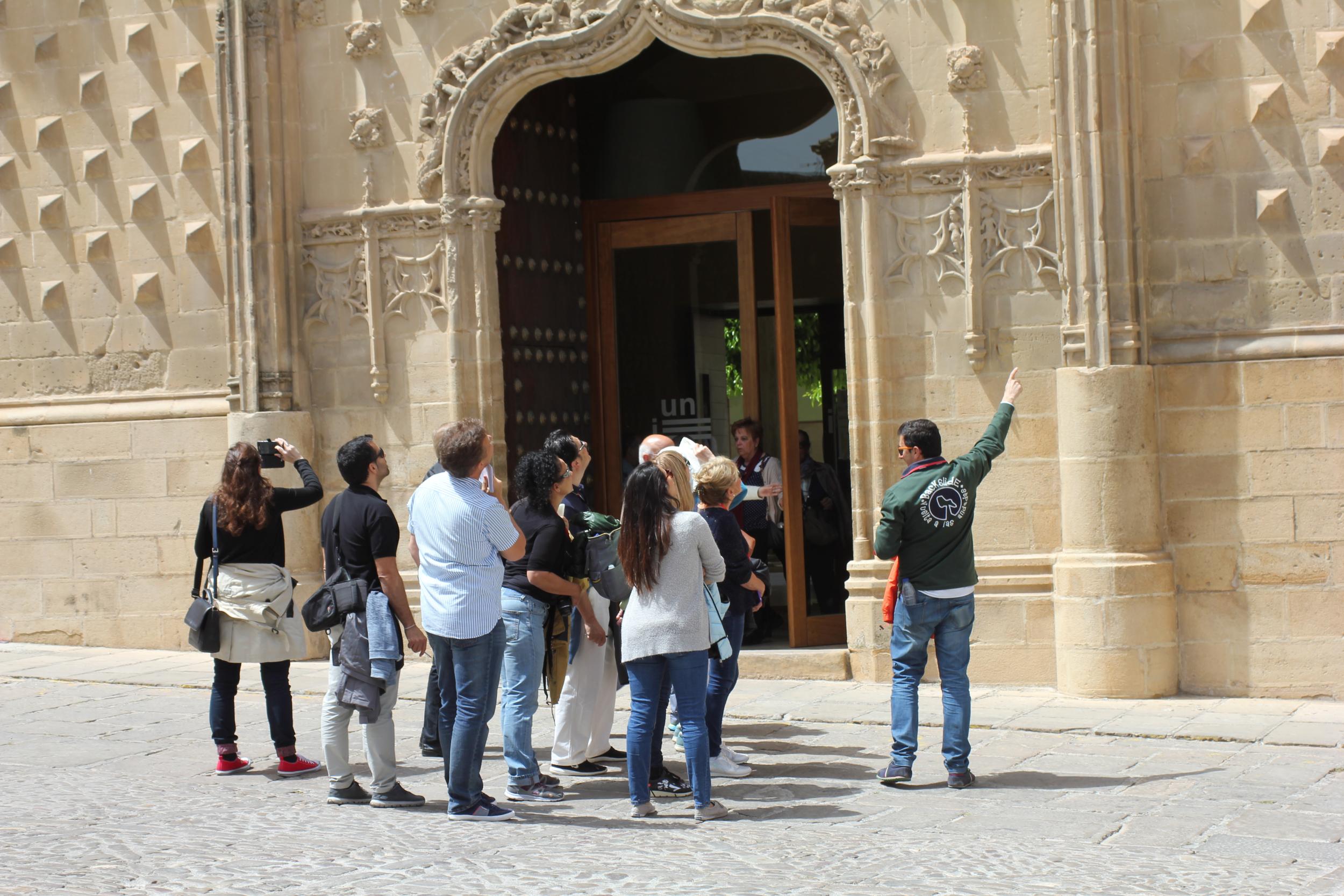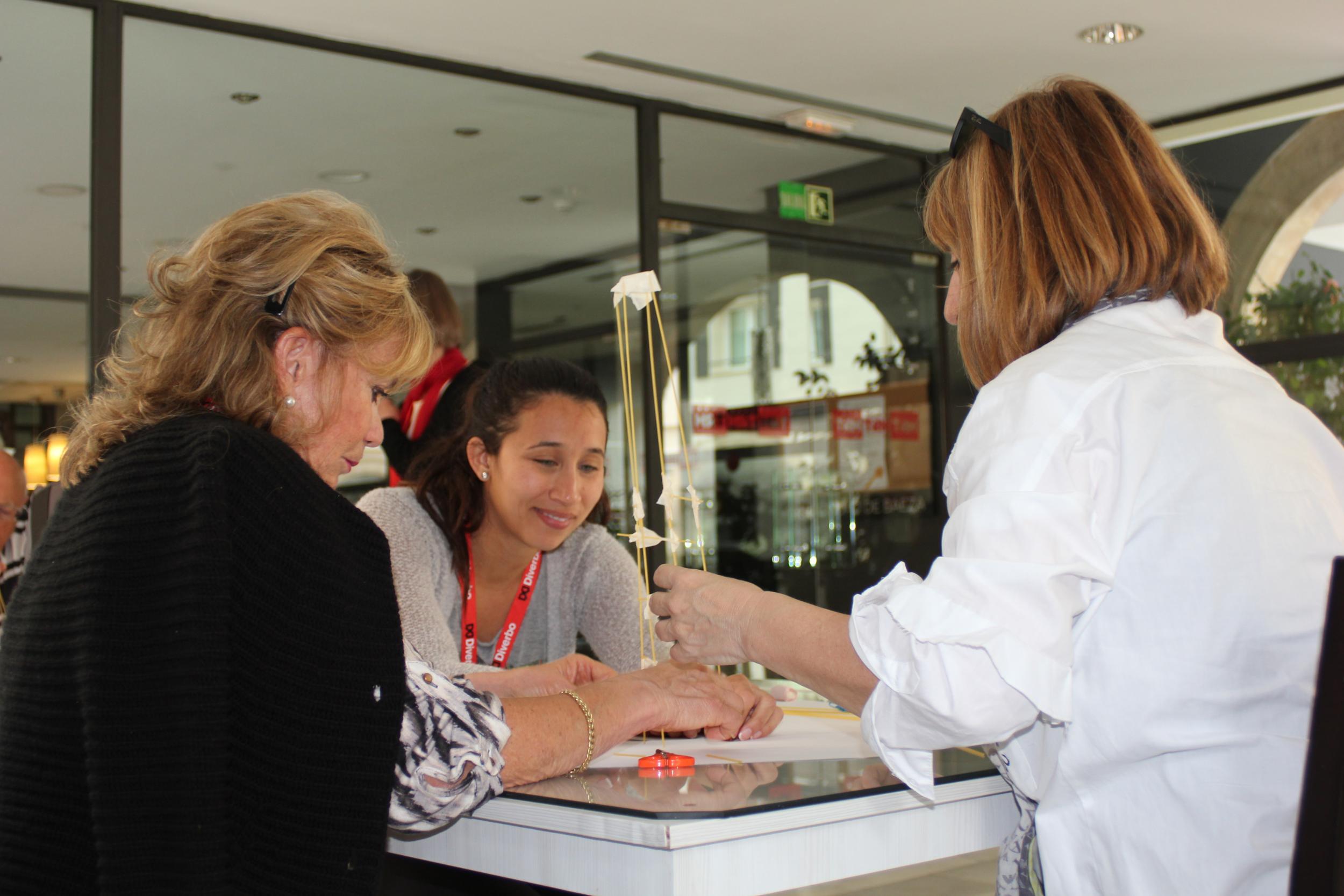The Independent's journalism is supported by our readers. When you purchase through links on our site, we may earn commission.
How to learn Spanish: Master the language in eight days on a total immersion course
Pueblo Espanol is a programme designed to rapidly improve participants’ language skills

Your support helps us to tell the story
From reproductive rights to climate change to Big Tech, The Independent is on the ground when the story is developing. Whether it's investigating the financials of Elon Musk's pro-Trump PAC or producing our latest documentary, 'The A Word', which shines a light on the American women fighting for reproductive rights, we know how important it is to parse out the facts from the messaging.
At such a critical moment in US history, we need reporters on the ground. Your donation allows us to keep sending journalists to speak to both sides of the story.
The Independent is trusted by Americans across the entire political spectrum. And unlike many other quality news outlets, we choose not to lock Americans out of our reporting and analysis with paywalls. We believe quality journalism should be available to everyone, paid for by those who can afford it.
Your support makes all the difference.A box of matches. Flares. A liferaft. I am trying to work out what I would need to survive on the moon from a list of 15 items, all written in Spanish. I decide that two bottles of oxygen would be the most important thing. It turns out that matches to start a fire (fifth on my list) would be no use – as there’s no oxygen on the moon.
It’s a Saturday afternoon in the town of Baeza in the south of Spain and I am in a group of 10, divided into teams for a game to guess the necessities for lunar survival. It’s fun – but the important thing is that we are only speaking Spanish, there is no English allowed, even to explain words we don’t understand.
The activity is part of an eight-day Spanish immersion called Pueblo Espanol, and this is day two. Five pupils – two from England, one German, one Australian and myself from Ireland – all with a conversational level of Spanish, have joined native Spanish-speaking volunteers, four from Spain and one from Colombia, for a week of intensive Spanish learning.
The unique thing about the programme is that there are no classes or grammar sessions – it is designed so that the participants live daily life in Spanish, eating meals, conversing and taking outings together. The week will be made up of conversation sessions (called tu y tu), group exercises and excursions in the area.
On the first day, I arrive later than the others and am bowled over by the high level of Spanish in the group – until I realise that it’s the volunteers who are doing most of the talking. The non-native Spanish speakers are feeling just as intimidated as I am.
At every meal, we are seated beside a volunteer, so there’s no chance to slip into English. It takes a day or two to get my ear attuned to Spanish again, but I am soon joining in the conversation, as are the other pupils. If we don’t understand a word – or the menu – the volunteers patiently explain in Spanish.

Mornings consist mostly of one-hour conversation sessions. We’re paired up one-to-one with a volunteer and we either stroll in the town, go to the shops or have coffee at the hotel. We are given suggested phrases to work on but the conversation can be about anything, so I learn about life in Columbia from one volunteer, and about a photography hobby from another. The town is small enough to navigate on foot – Baeza is a World Heritage Site and there’s a 12th century cathedral and the remains of old walls in the Old Town – so some of my conversation sessions are combined with a stroll through the tiny old streets.
During the afternoons, we do phone conversations, act in comedy sketches and give a presentation in Spanish, where we are marked on everything from the presentation structure to pronunciation and body language.
We also have breakfast, lunch and dinner together each day. It’s the normal chat of people getting to know each other – with the odd stumble as we pupils sometimes get tongue-tied. The volunteers are not teachers and it’s refreshing to be learning without heavy grammatical explanations.

“Grammar is important but a language has to be learned in context,” the programme leader, Marco, tells us. “Conversation puts the language in context. Coexistence with Spaniards is at the heart.”
Marco tells us that there will be a point, probably on day three, when our head will melt and we’ll think, “I can’t take it anymore. I can’t speak Spanish.” We will feel like we are unlearning and forgetting. “We have a special cure on Sunday night for that,” he grins.
The “cure” turns out to be queimada – a traditional drink from Galicia where the spirit orujo is mixed with lemon peel, sugar, cinnamon and coffee beans and set alight, while the “cook” recites a spell. It seems to work – after one or two glasses, my Spanish improves markedly for the rest of the evening.
The week is a challenge but fascinating. We’re doing what we’d do in daily life, but in Spanish. Guided tours provide a break in routine – we visit the neighbouring World Heritage Site town Ubeda and also do an olive oil tour – the province of Jaen is the world’s largest olive oil producer.

The programme is so busy that there isn’t much time for things like checking emails or messages, but the disconnection from electronic devices is an unexpected bonus. You really are immersed in Spanish but in an interesting way – it never feels like studying or learning and no day is boring. Having volunteers from so many different places allows us to experience lots of different accents and learn about different cultures.
Not only do I come away feeling much more confident in Spanish but should I ever find myself stranded on the moon, I know what to include in the survival kit.
Travel essentials
Getting there
Ryanair and easyJet both fly direct from London Stansted and London Luton respectively to Madrid from £83 return for the July course dates.
Staying there
Pueblo Espanol programmes run from March to November and the eight-day Spanish immersion course, which includes more than 100 hours of conversation with native Spaniards, full room and board in a private room, transport to and from Madrid, activities and guided tours costs €1,950 (£1720).
Join our commenting forum
Join thought-provoking conversations, follow other Independent readers and see their replies
Comments